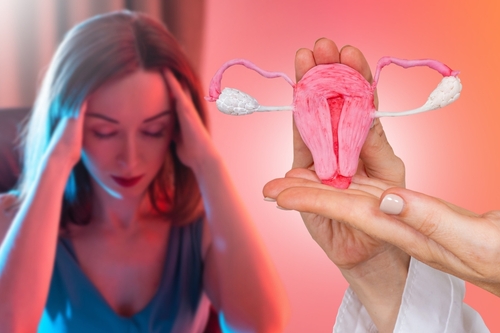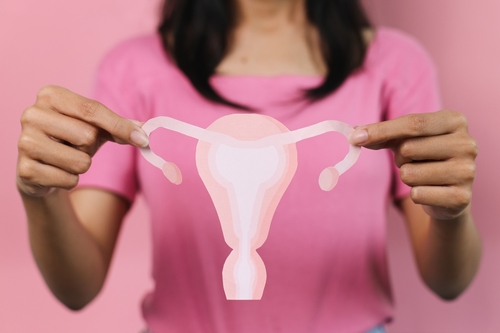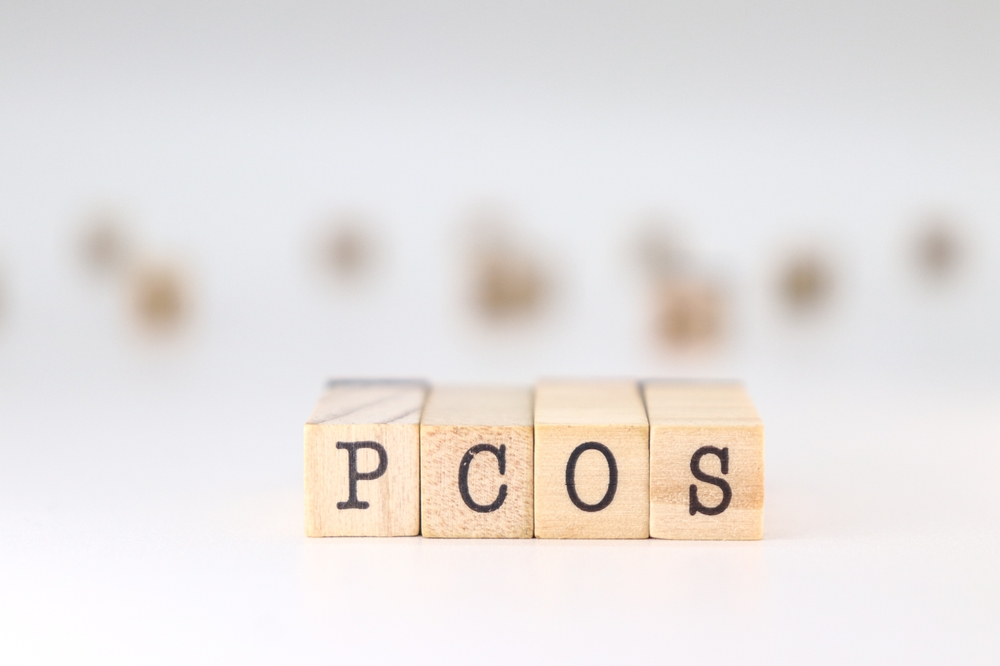
What is Polycystic Ovarian Disease?
PCOD is a hormonal imbalance caused by excessive hormone production in the ovaries. Individuals with PCOD have abnormally high androgen hormone production in their ovaries. This leads to an imbalance in your reproductive hormones. This often leads to people with PCOD having irregular menstrual cycles, frequently missing periods, and experiencing unpredictable ovulation. PCOD is a leading cause of infertility in women. Ayurvedic treatment for PCOD takes a comprehensive perspective on well-being and health. To address PCOD, Ayurvedic treatment focuses on restoring the balance of doshas and addressing the condition’s root causes.

Discover Ayurveda's Healing Touch for PCOD
In Ayurveda, treating PCOD involves cleansing the body’s vital systems by regulating rasa and Rakta Dhatus. The high levels of impurities and toxins in the body, caused by the modern lifestyle and stressful environment, can result in the development of ovarian cysts. The removal of toxins and impurities in the body helps restore hormone balance by balancing the three doshas. Effective results can be achieved by making a few lifestyle modifications in addition to Ayurvedic treatment. Ayurveda believes that consuming too many contraceptive pills, experiencing mental stress, and having a sedentary lifestyle can generate toxins in the body, resulting in conditions like PCOS. At Ayurbethaniya, our Ayurvedic treatment for PCOD/PCOS focuses on diet, lifestyle modifications, and panchakarma treatment.
Contact us to get the best Ayurvedic Treatment for PCOD in Kerala.
At Ayur Bethaniya Ayurveda Hospital, we offer personalized herbal treatment plans for PCOD that are both safe and effective. The doctors will thoroughly examine the patient to determine the most suitable ayurvedic treatment for PCOD based on their physical condition, family history, and severity of the problem. Ayur Bethaniya has found this to be essential for effective ayurvedic treatment of PCOD in Kerala. We make sure that the individual is completely and flawlessly healed within the specified timeframe. Additionally, the treatment will protect against future PCOS recurrences.
Ayur Bethaniya guarantees complete healing from symptoms and rejuvenates the body, mind, and soul for overall well-being. We offer a complete package of medical care and support, including excellent infrastructure, utilities, and a highly skilled team of doctors and staff. At Ayur Bethaniya Ayurveda Hospital, we adhere to Ayurvedic principles to offer high-quality herbal medication and decoctions for Ayurvedic PCOD treatment in Kerala, ensuring effective results and no side effects. When it comes to Ayurvedic treatment for PCOD in Kerala, Ayur Bethaniya’s stands out. Ayur Bethaniya offers exceptional facilities for patients to have a calming and peaceful experience, promoting speedy recovery. Schedule an appointment now to learn about PCOD treatment options and costs.
Feel free to contact us for queries regrading Ayurvedic Treatment for PCOD in Kerala.
Need to know the ayurvedic treatment for Uterine Fibroid and ayurvedic treatment for Infertility.


